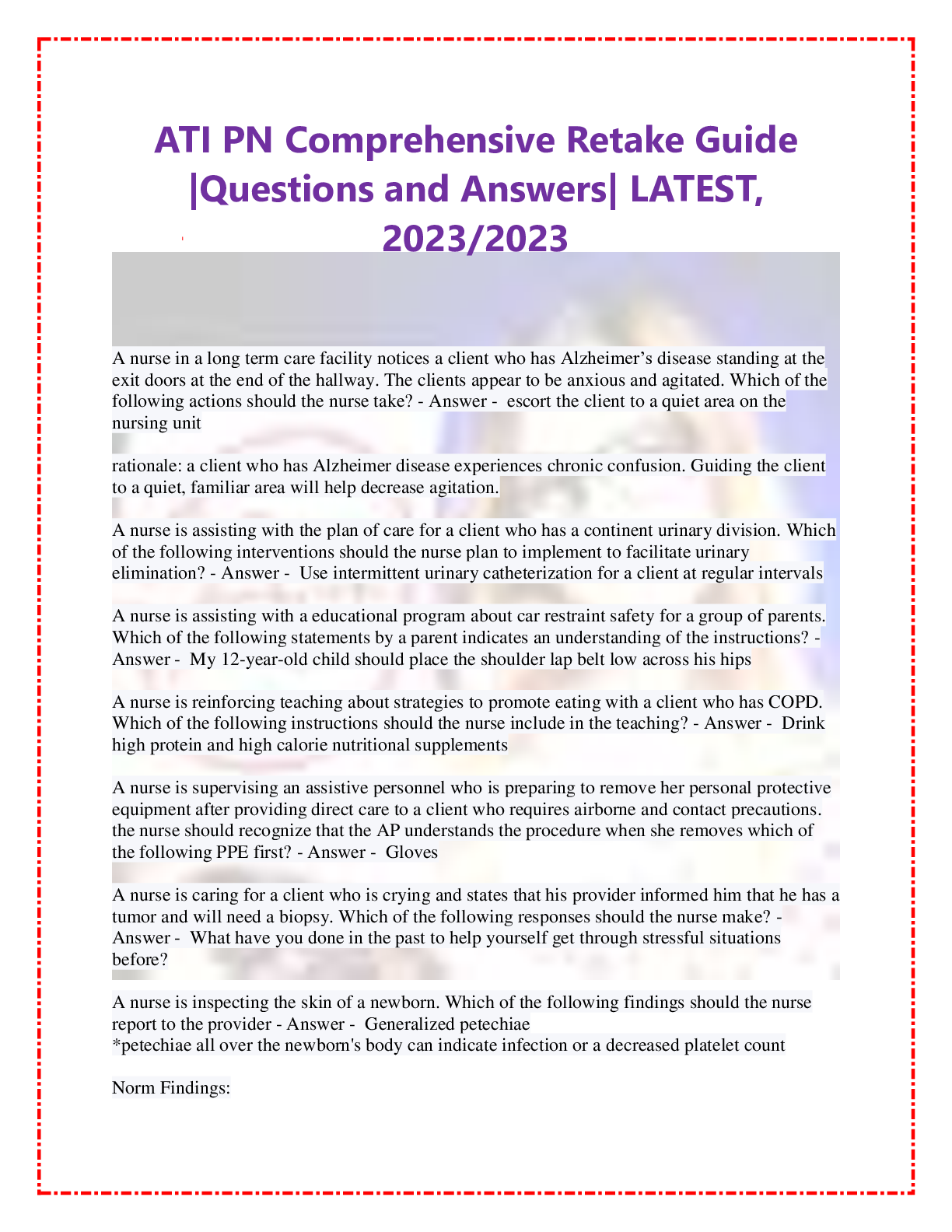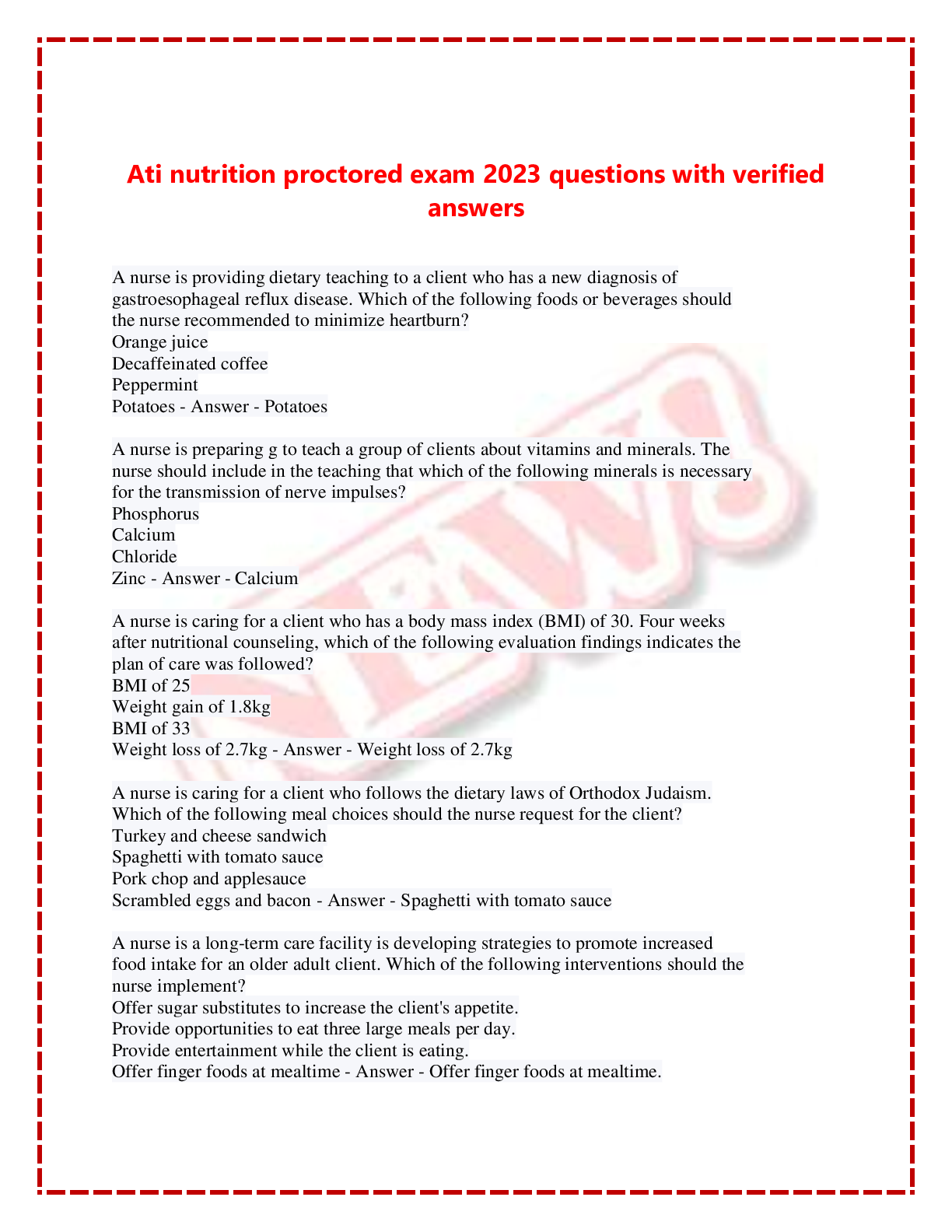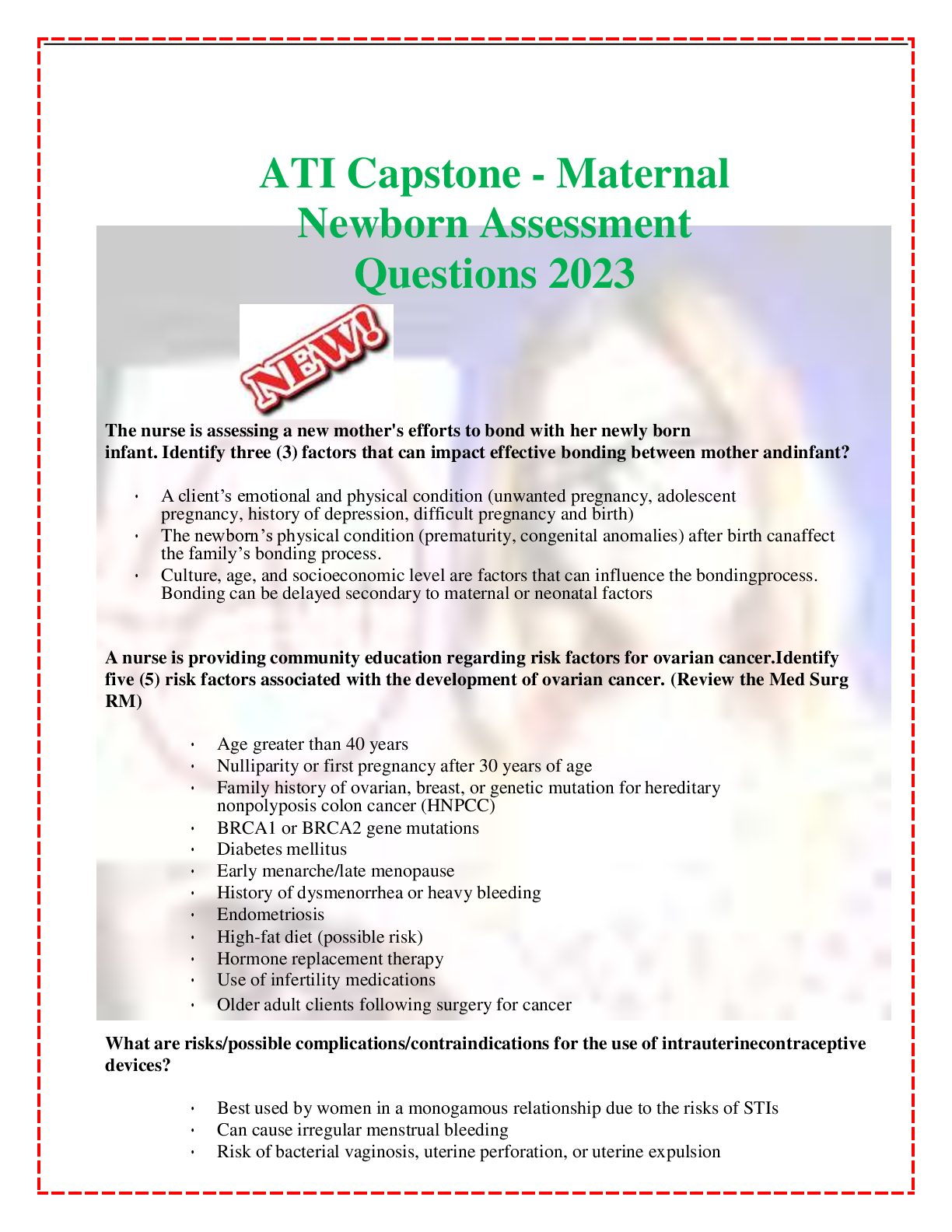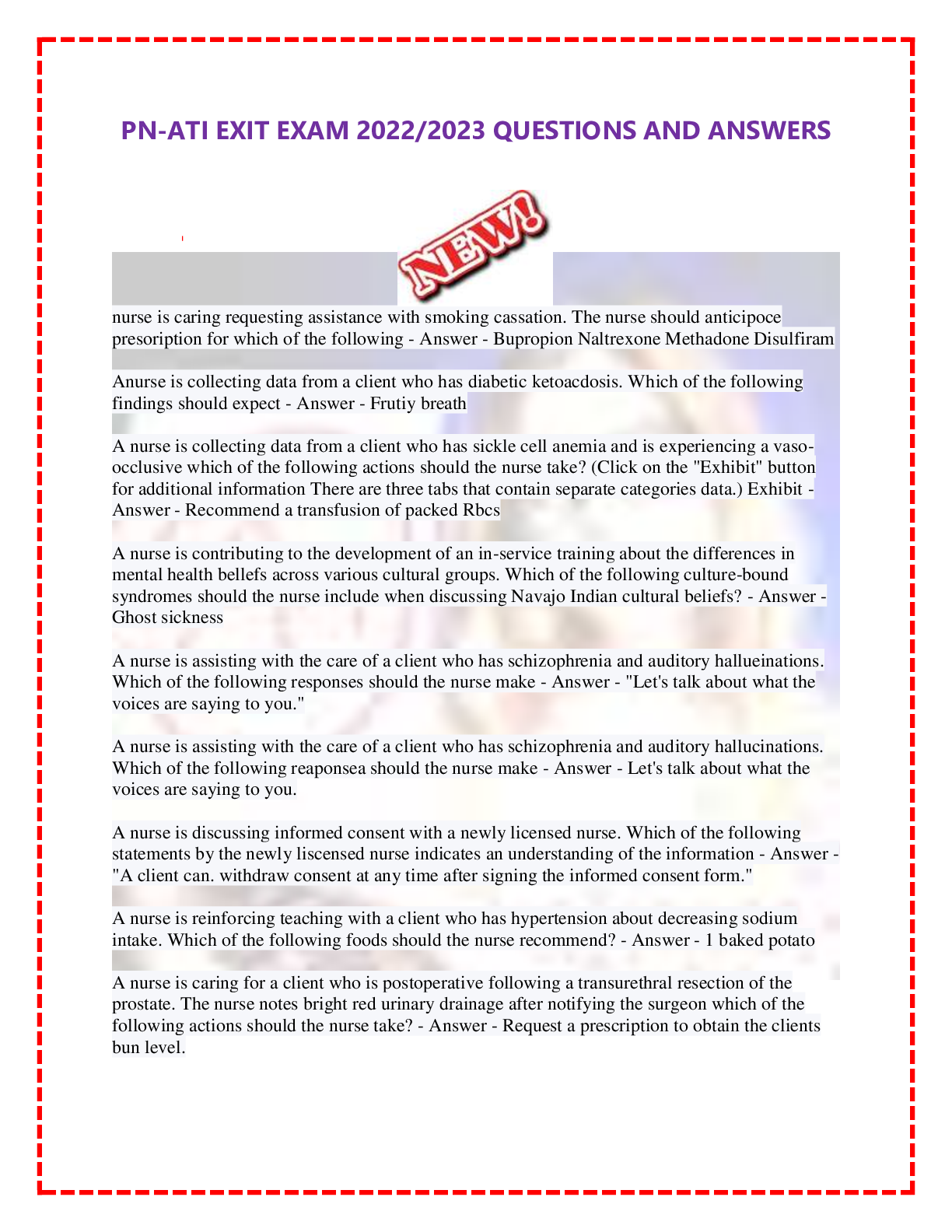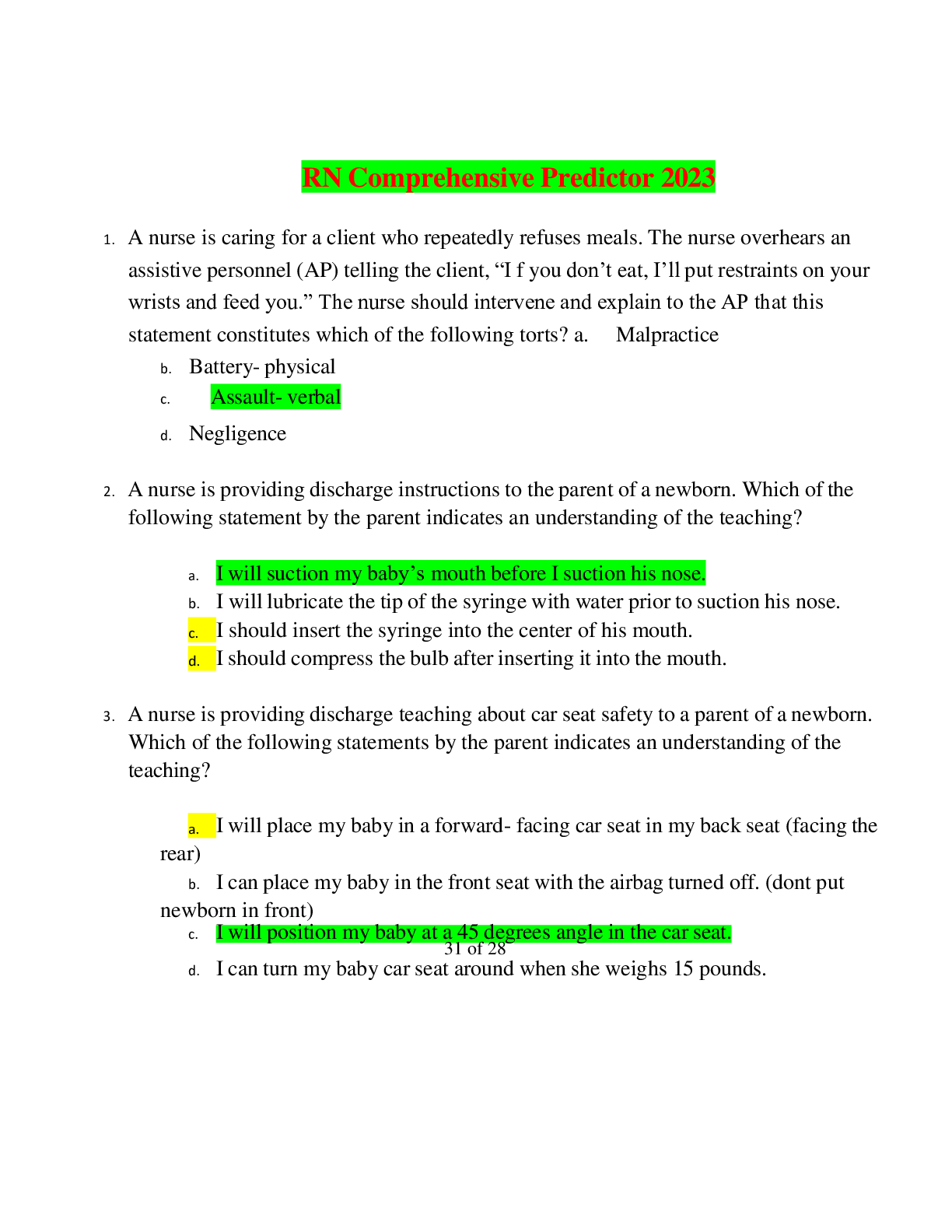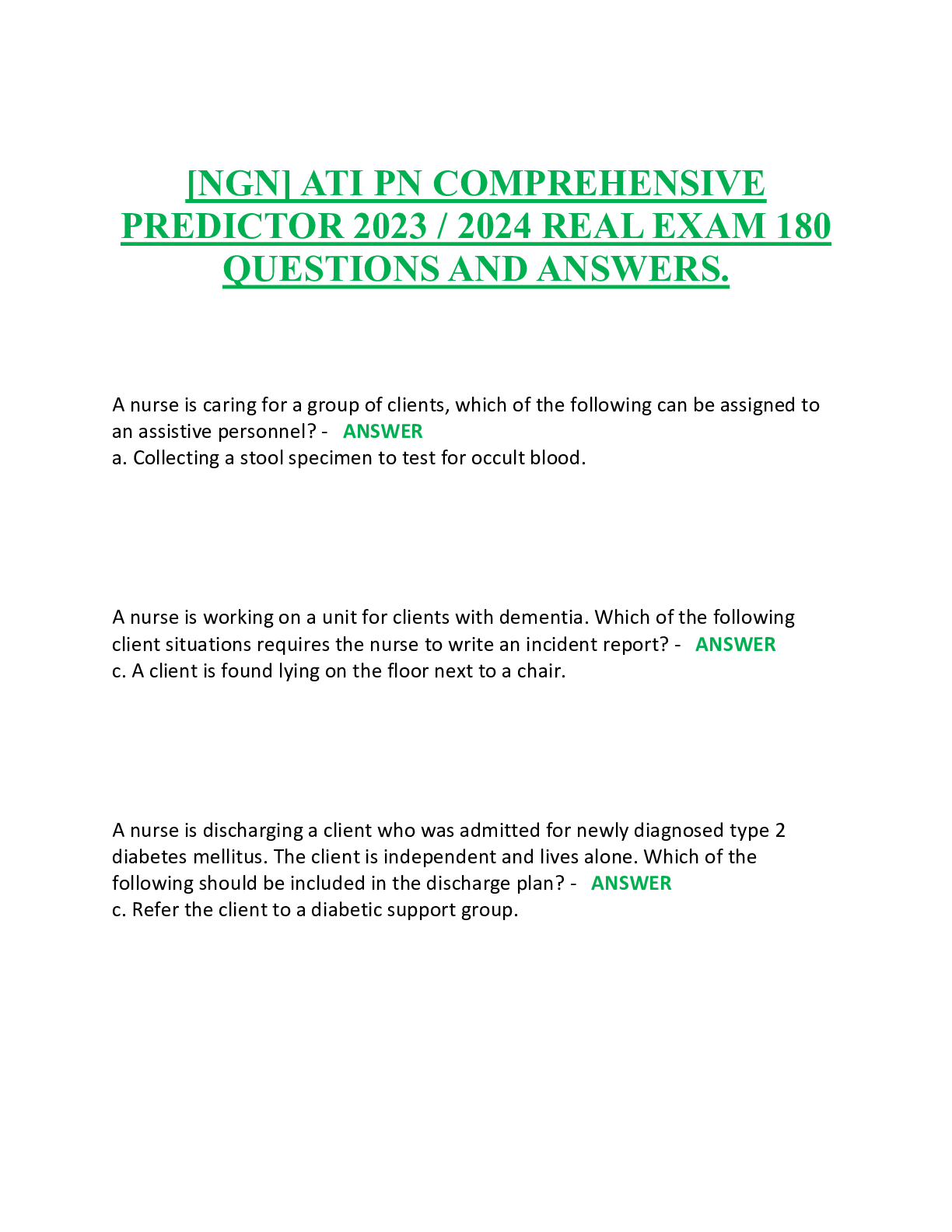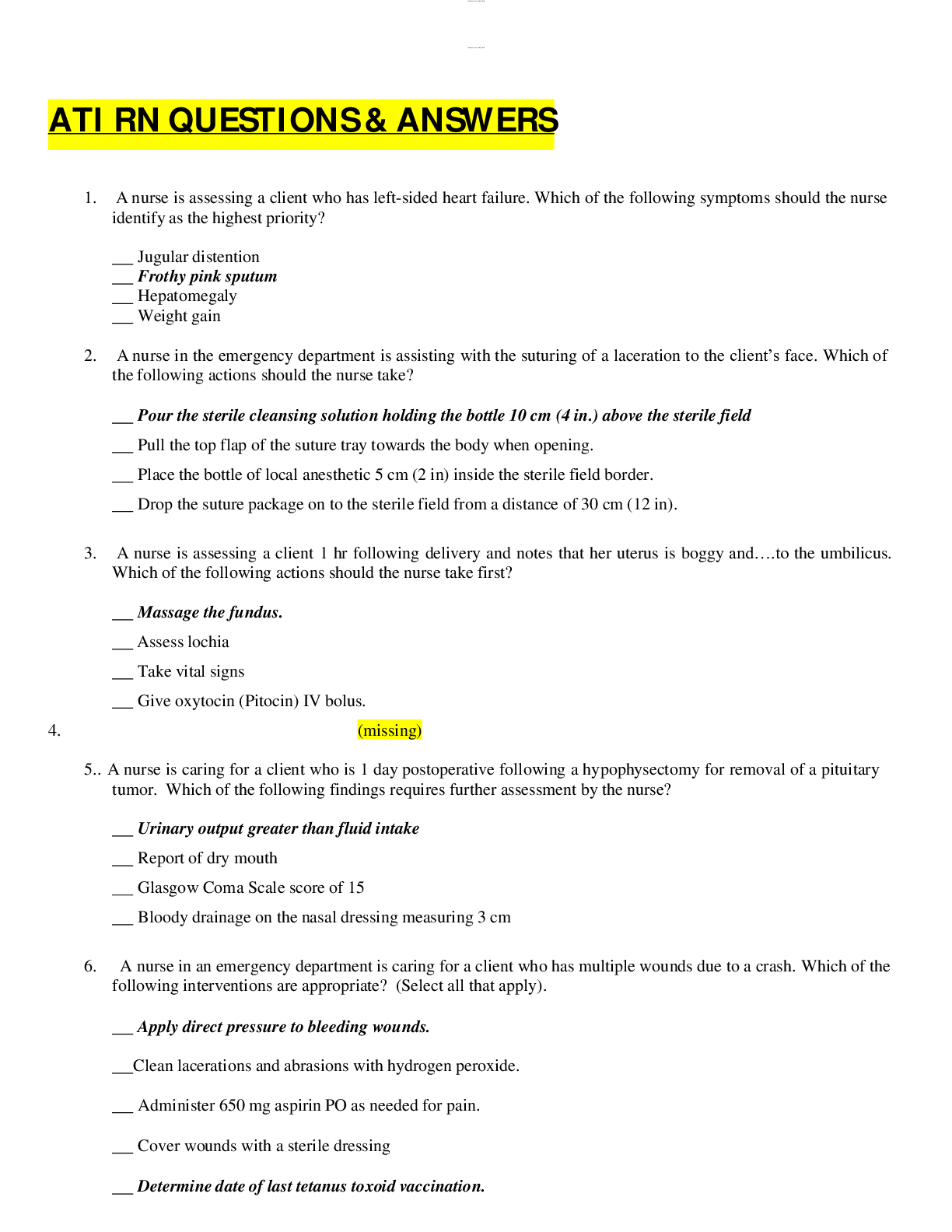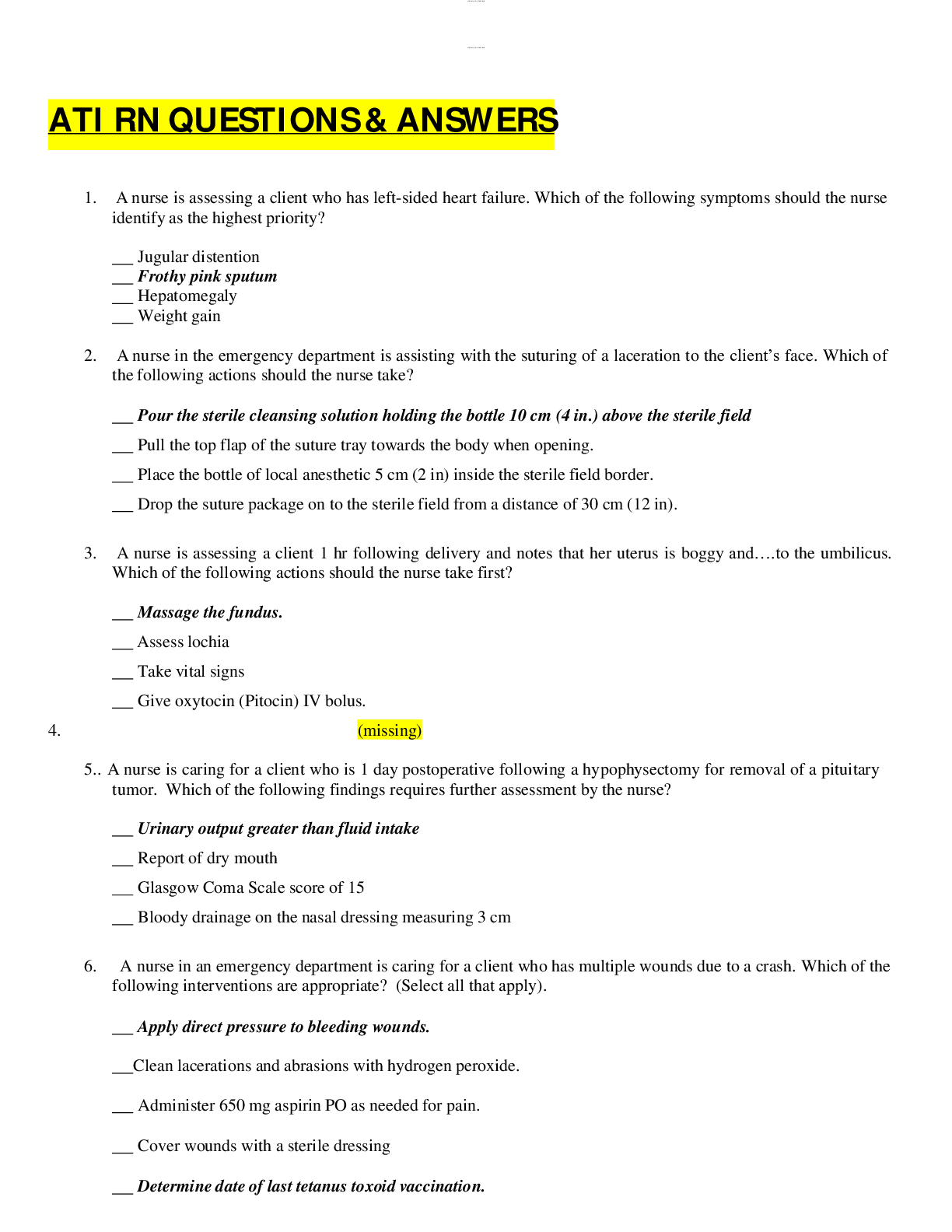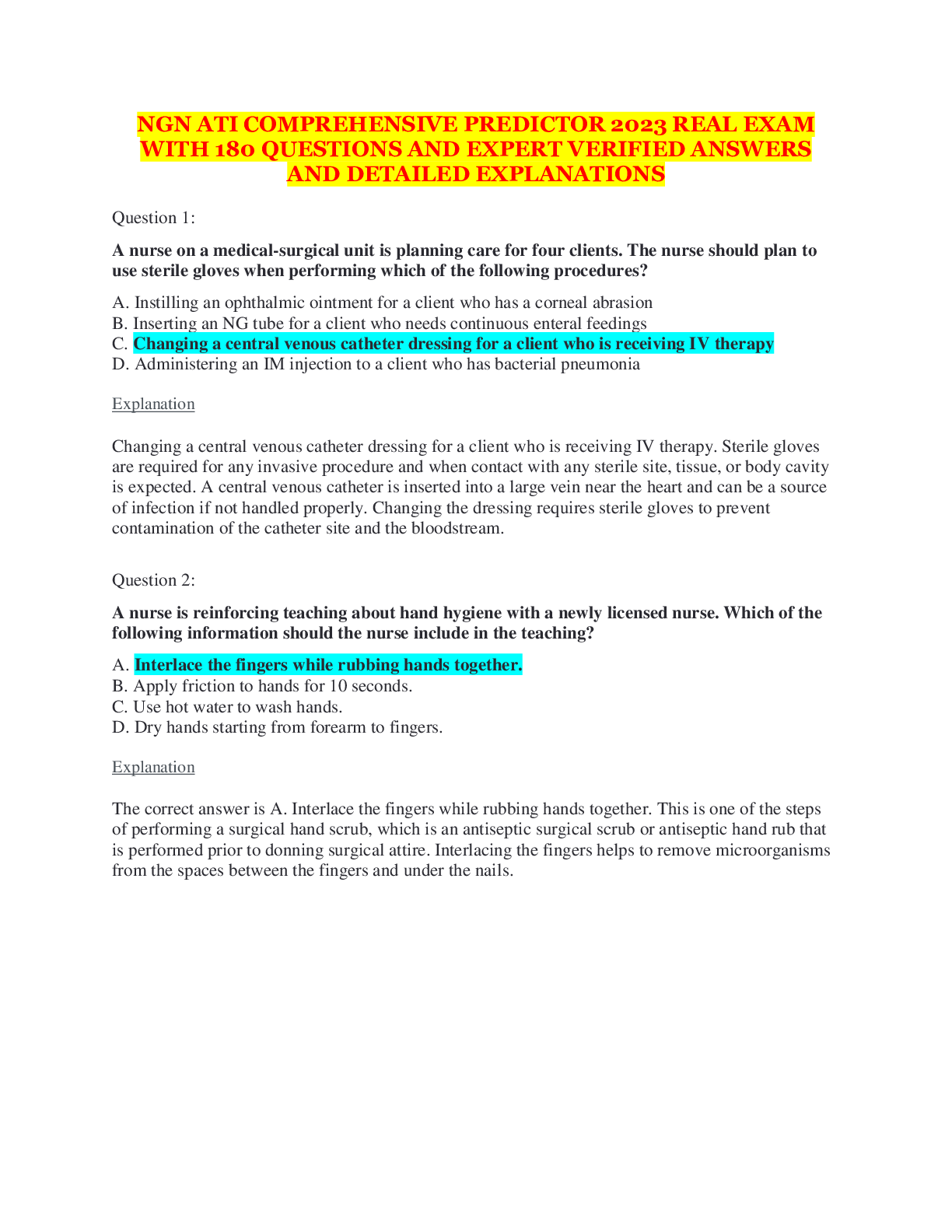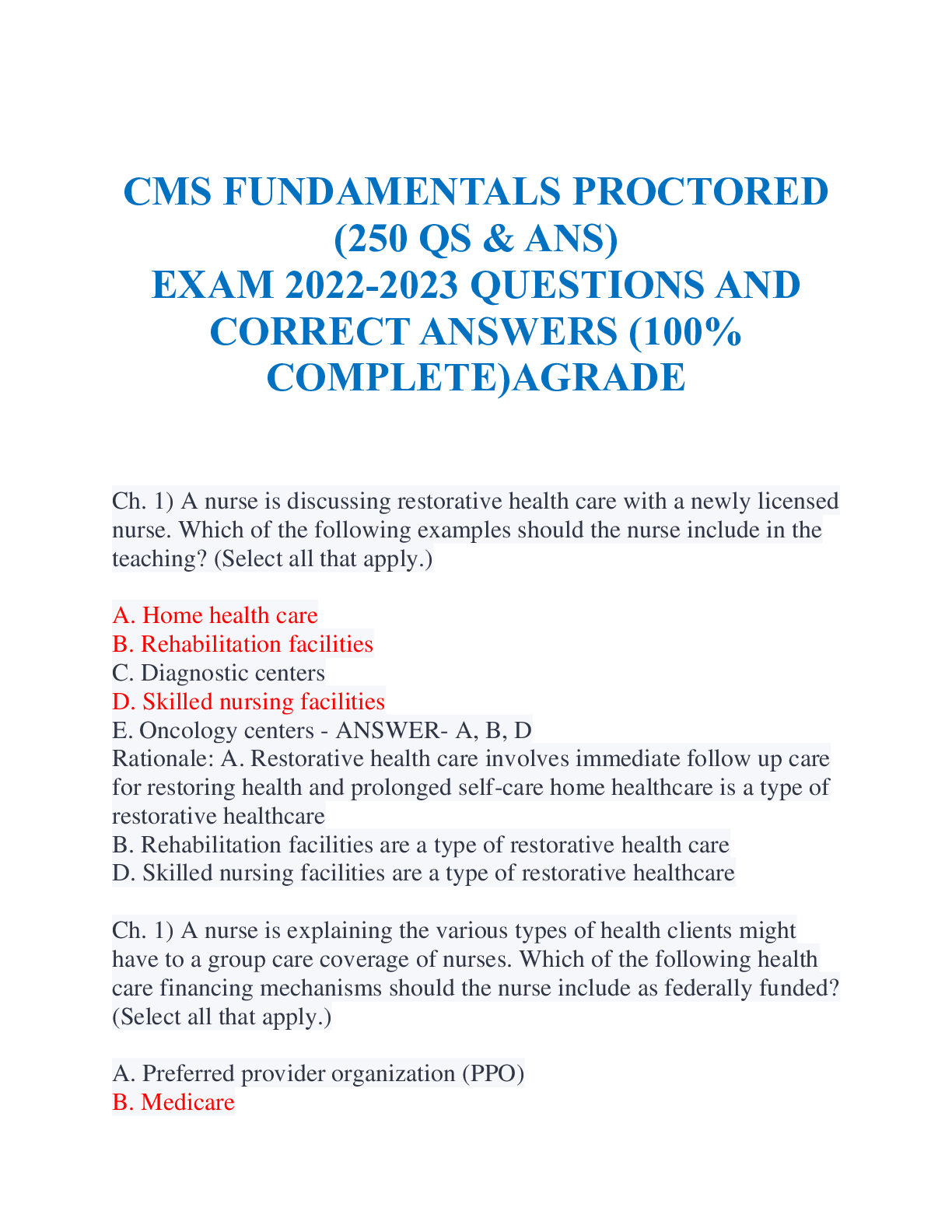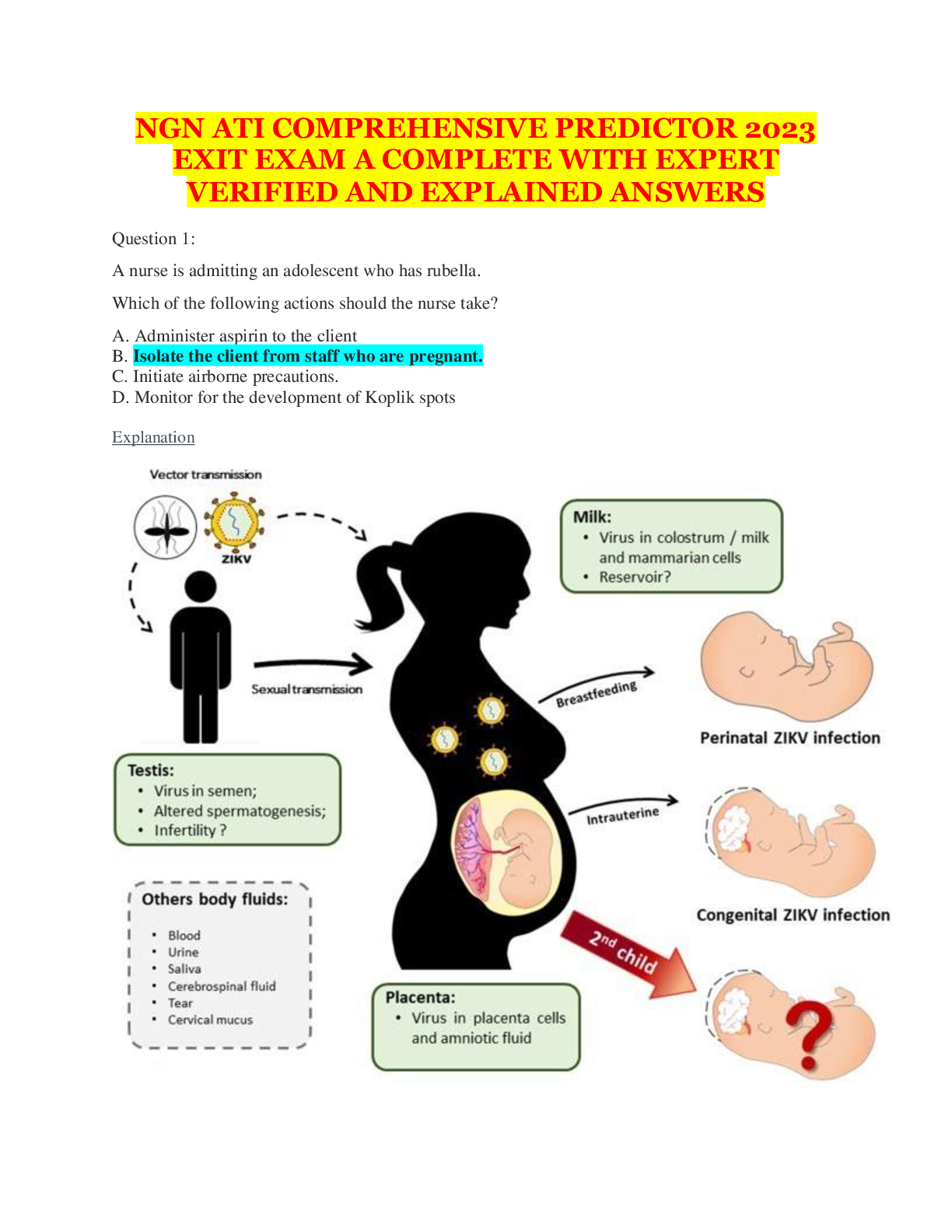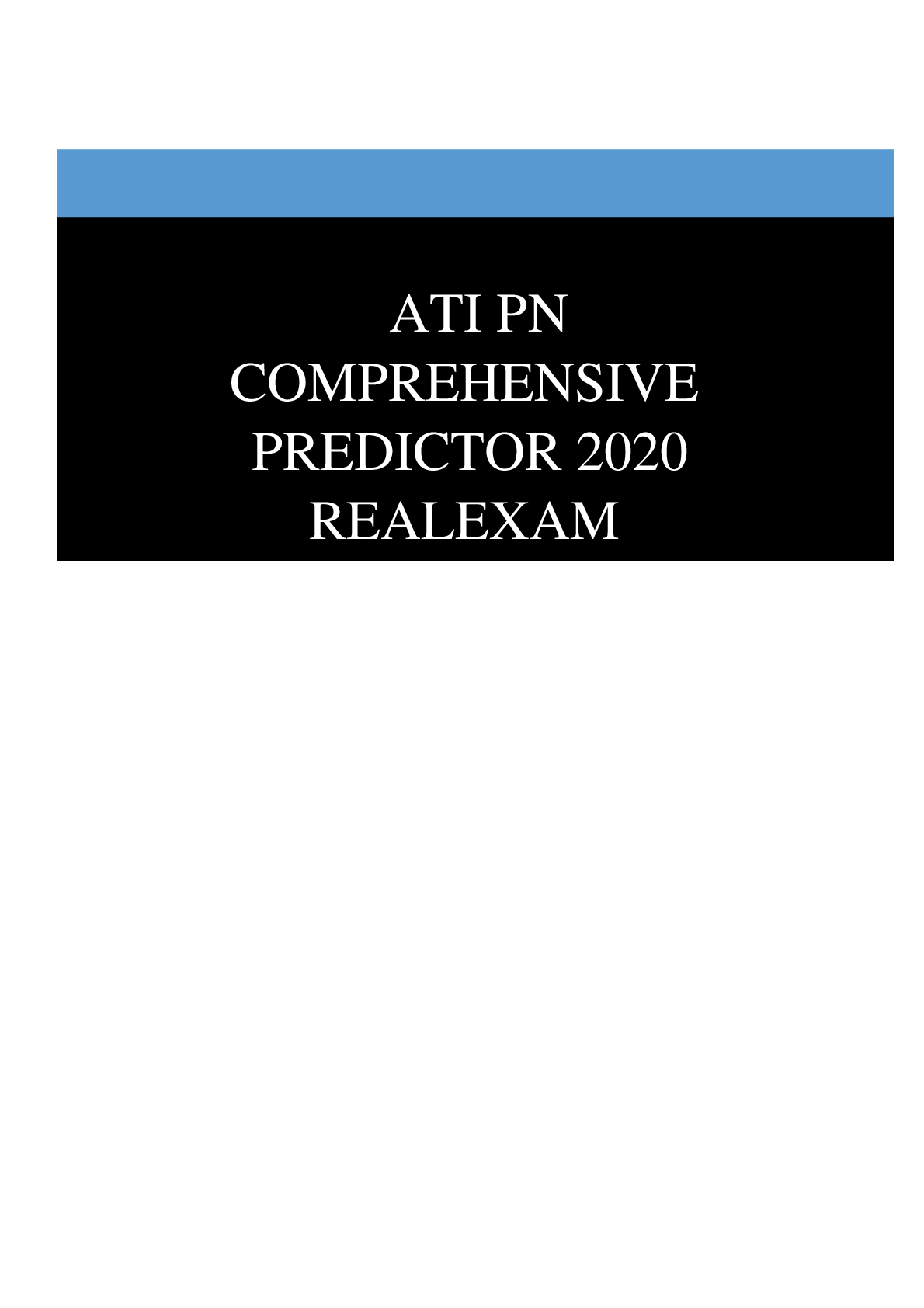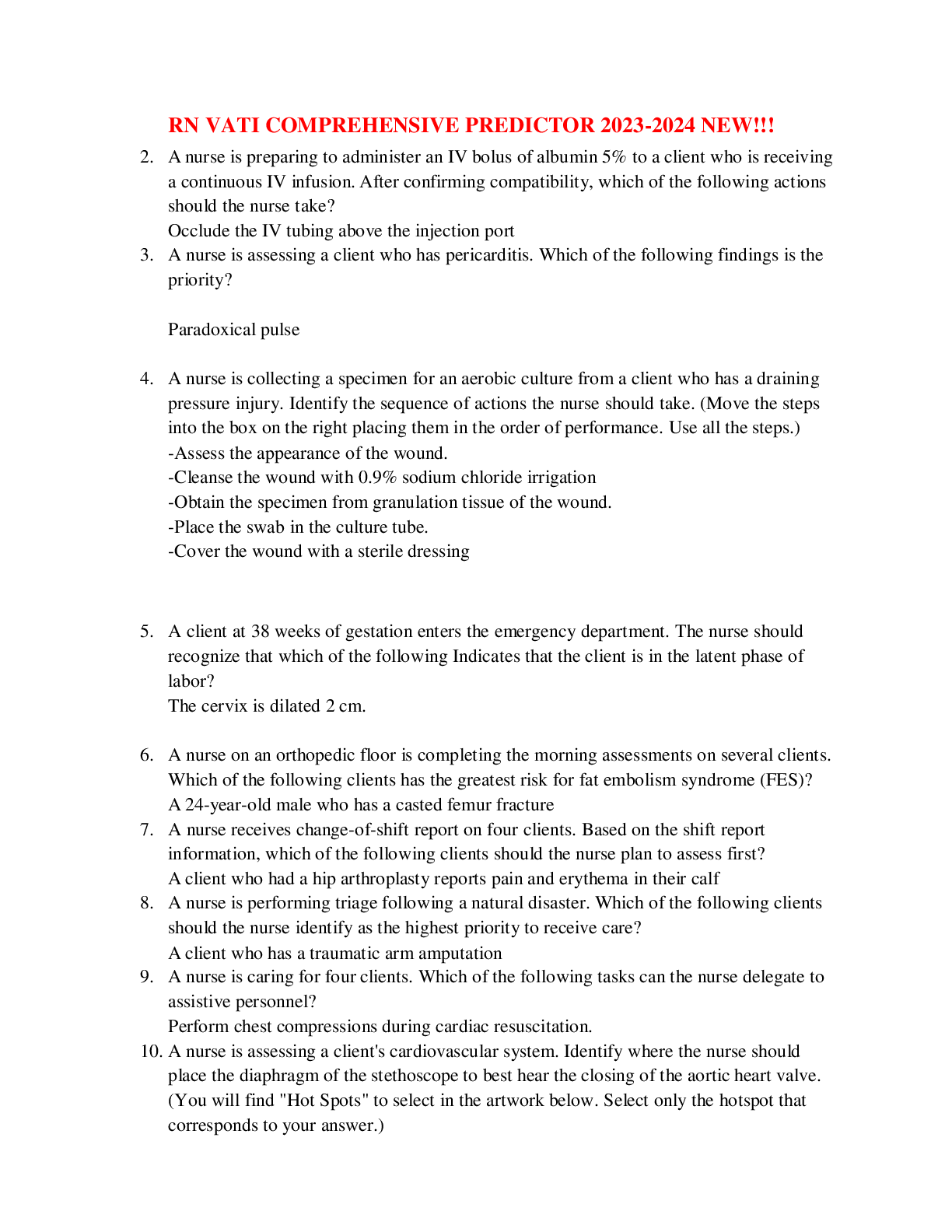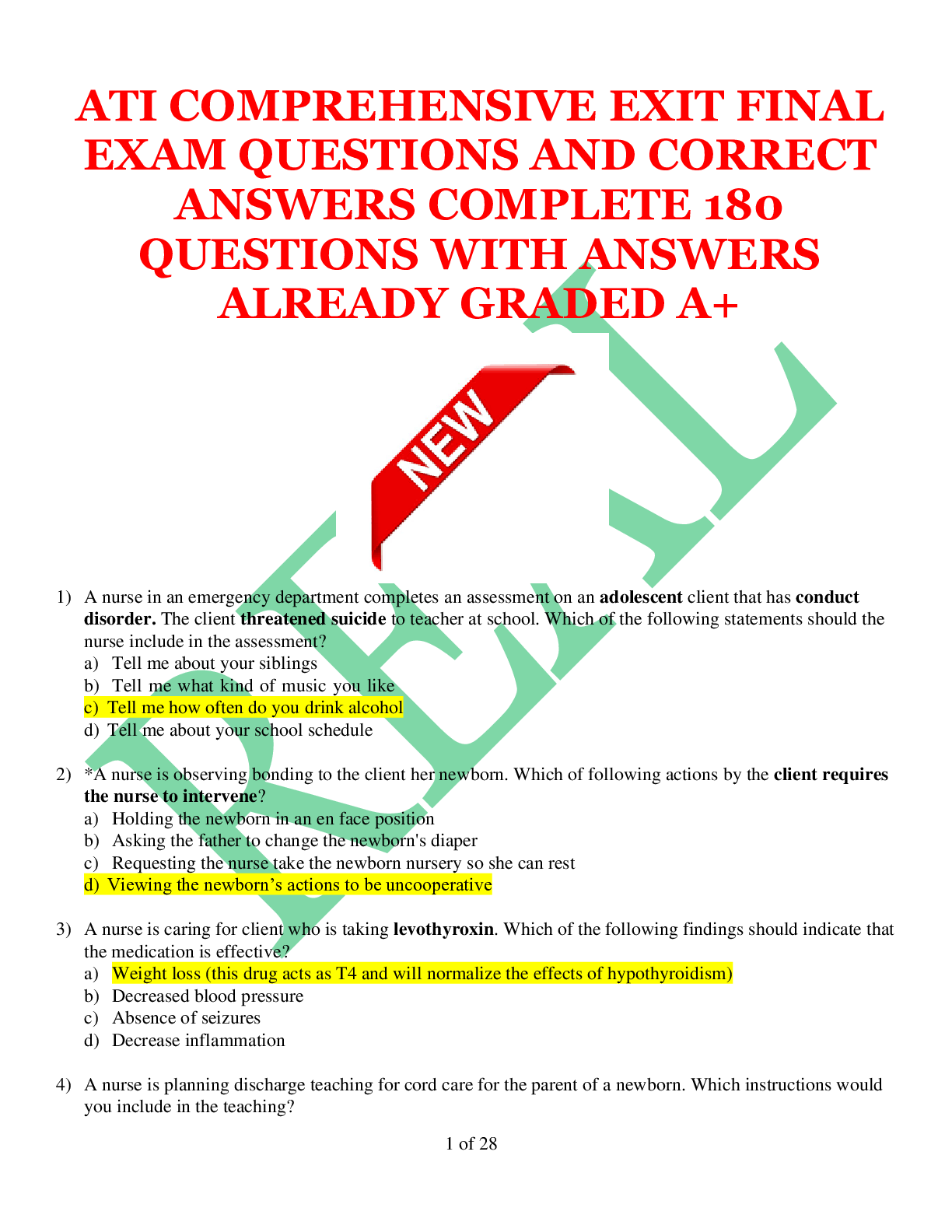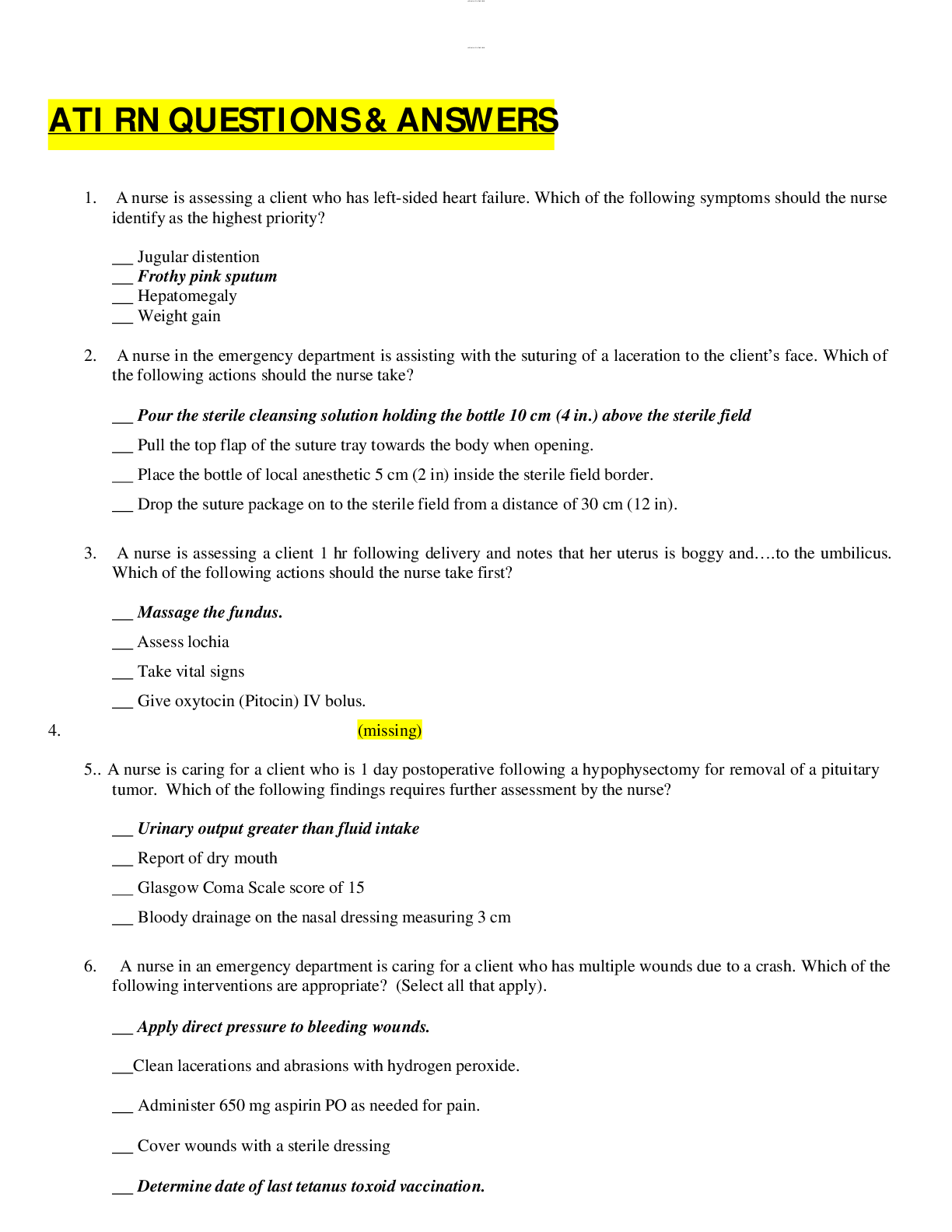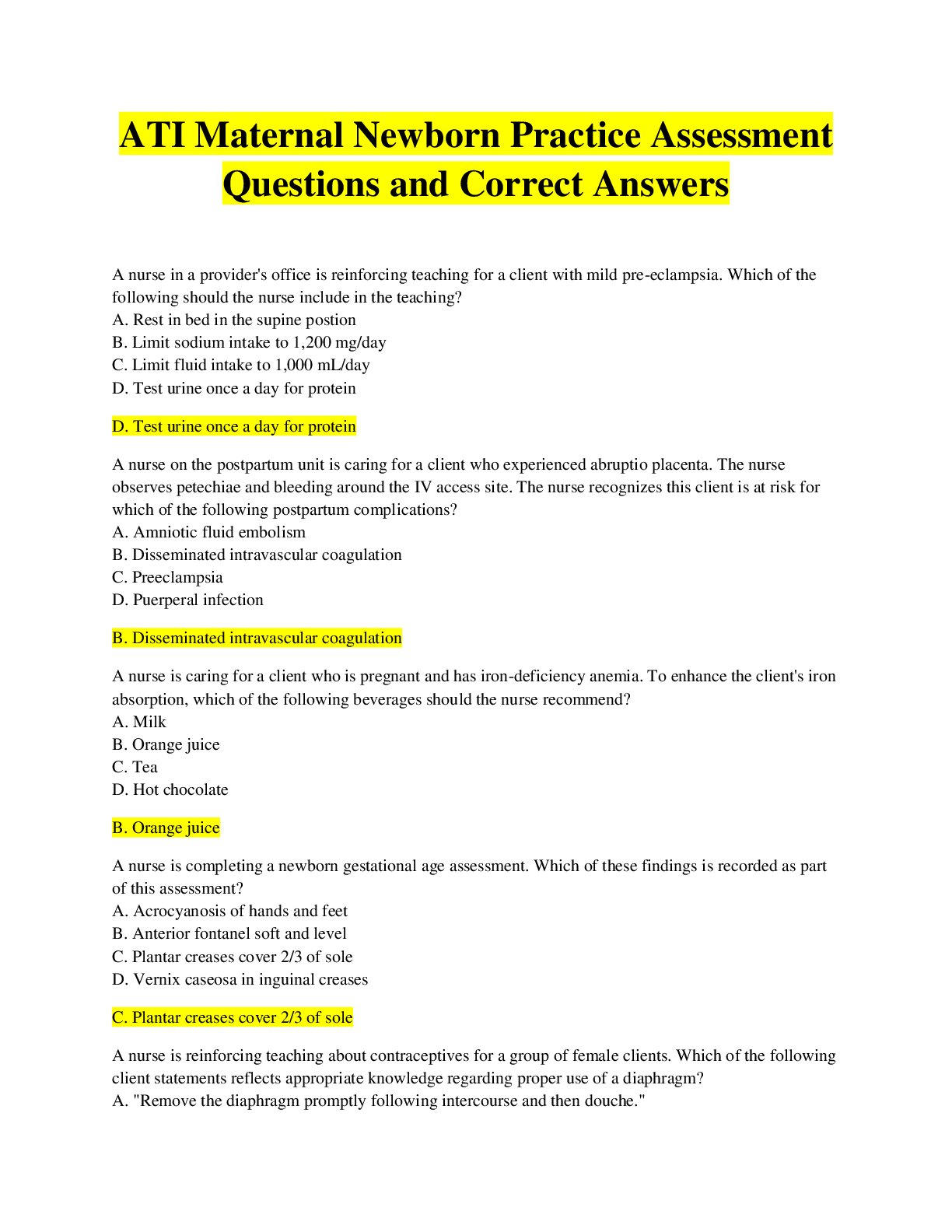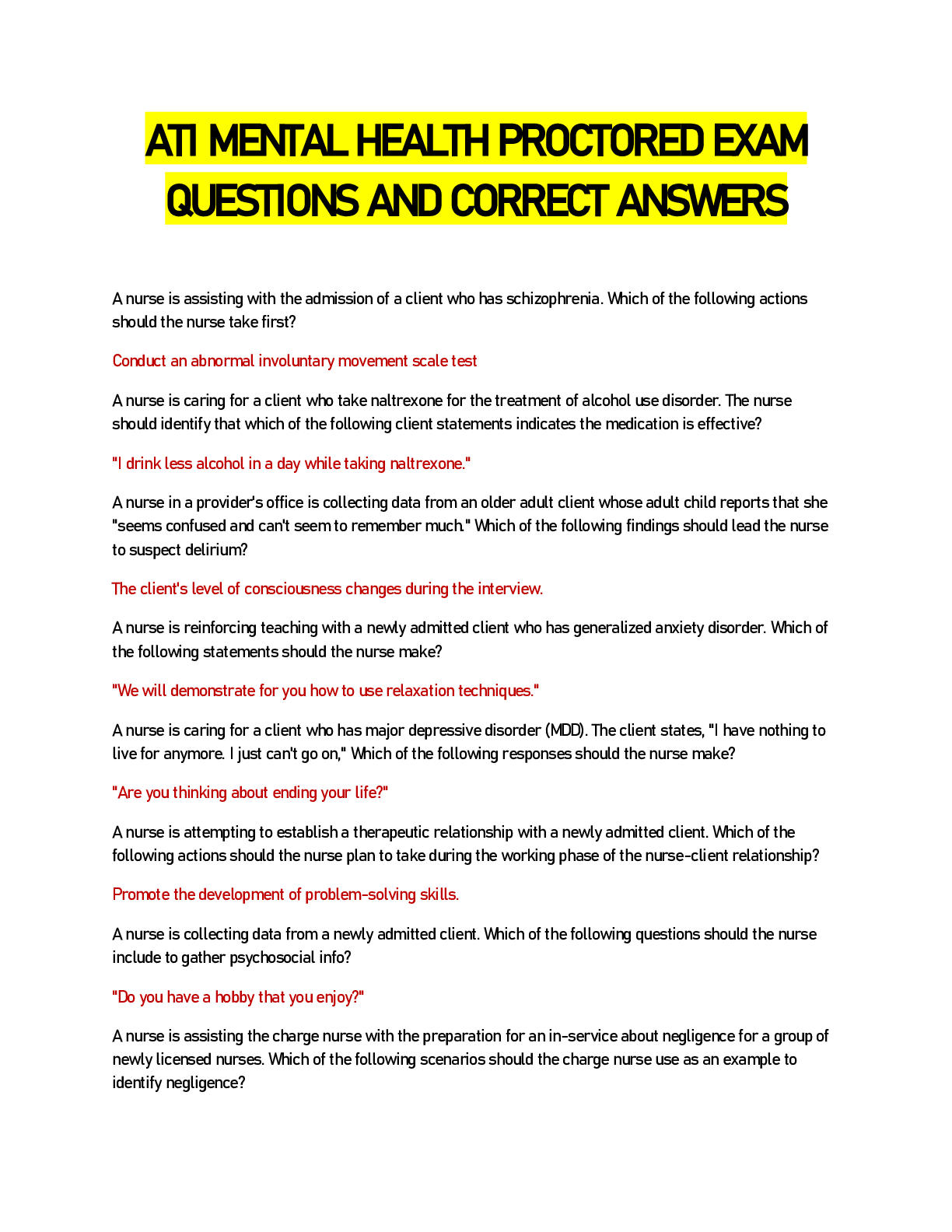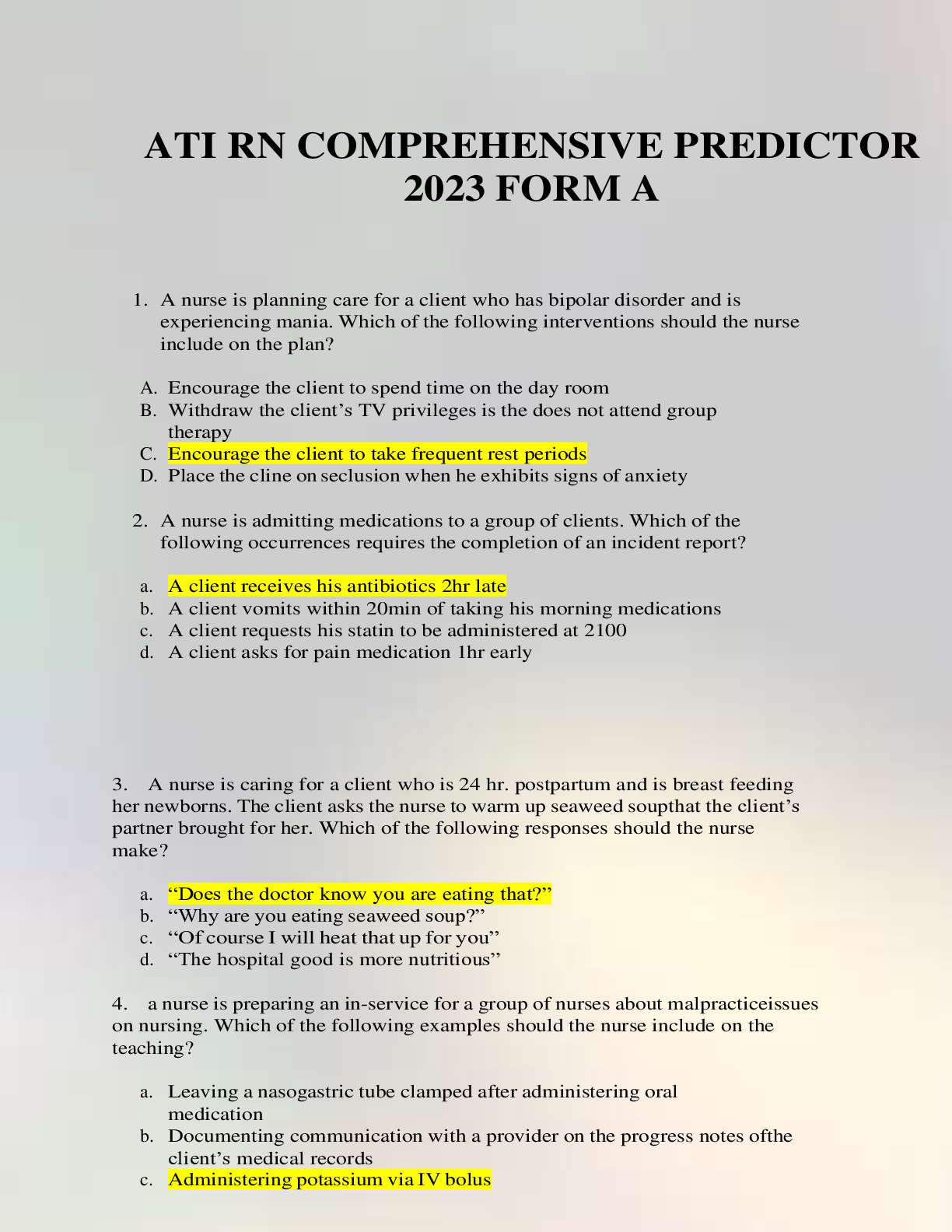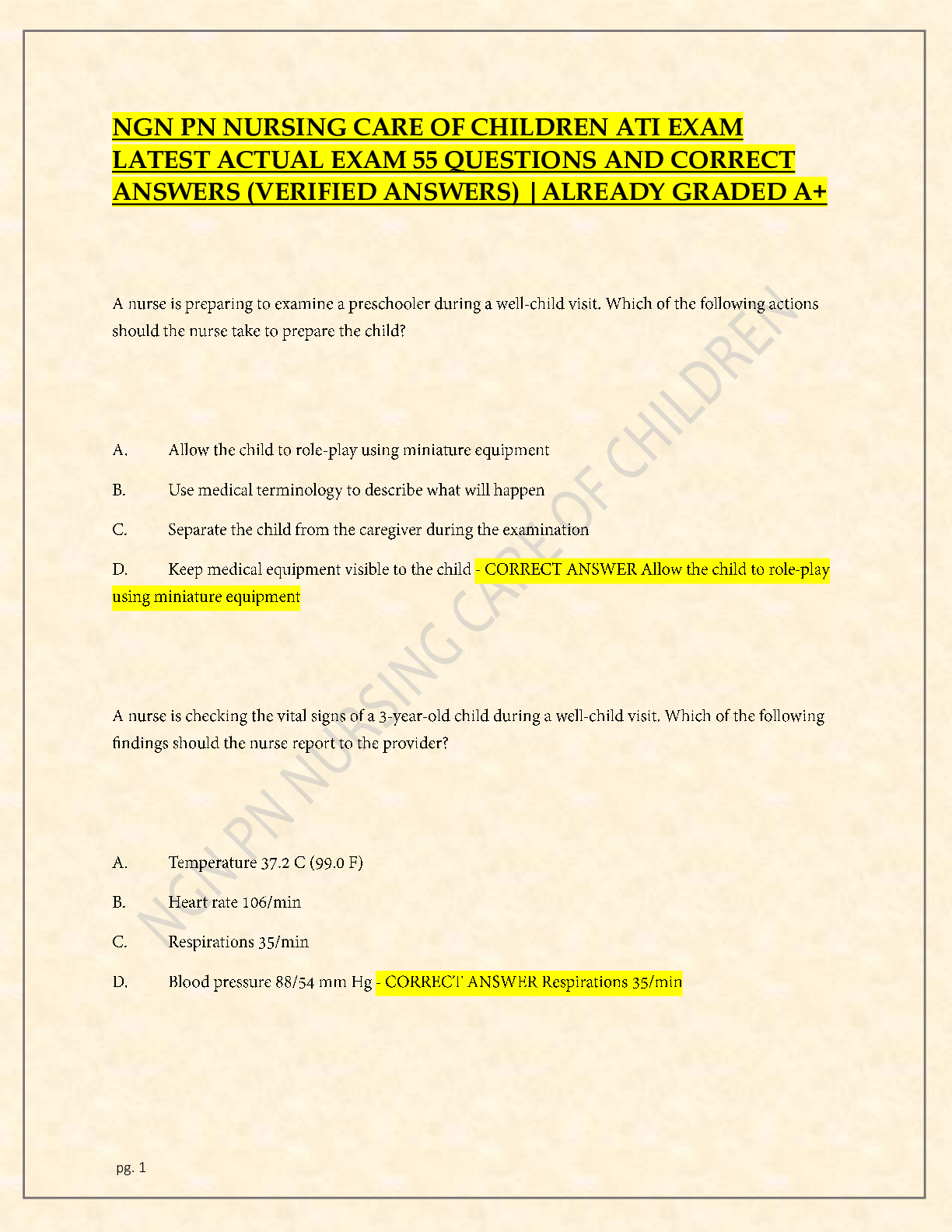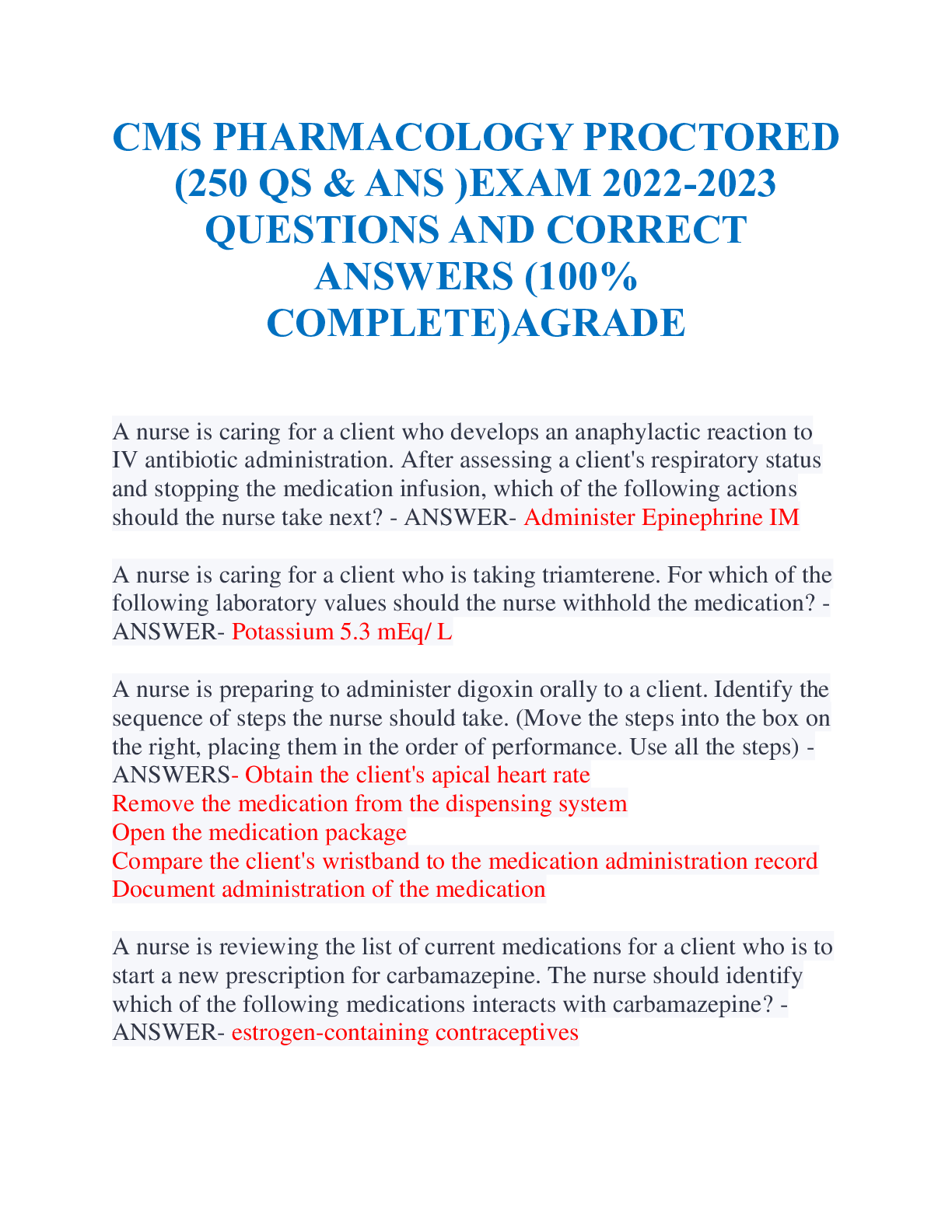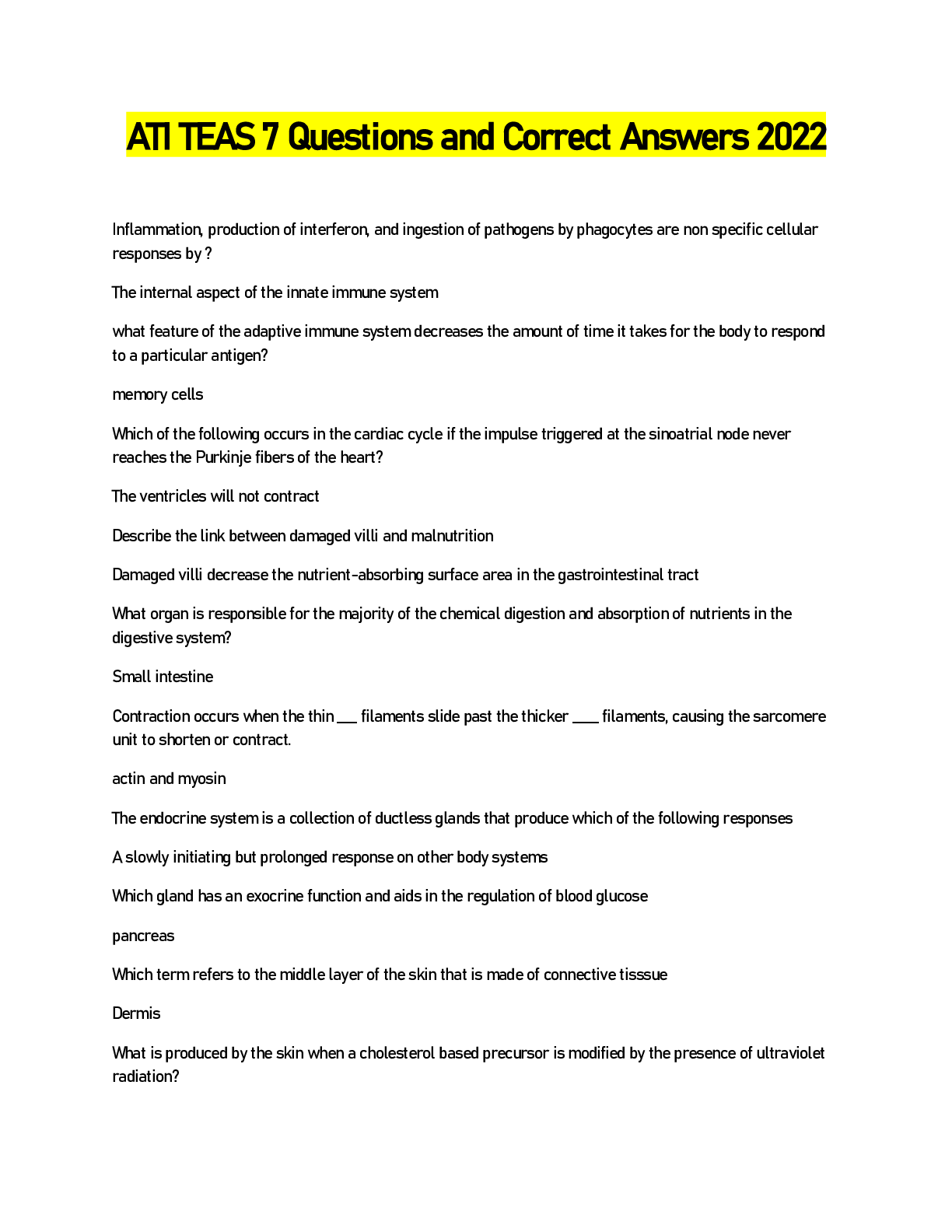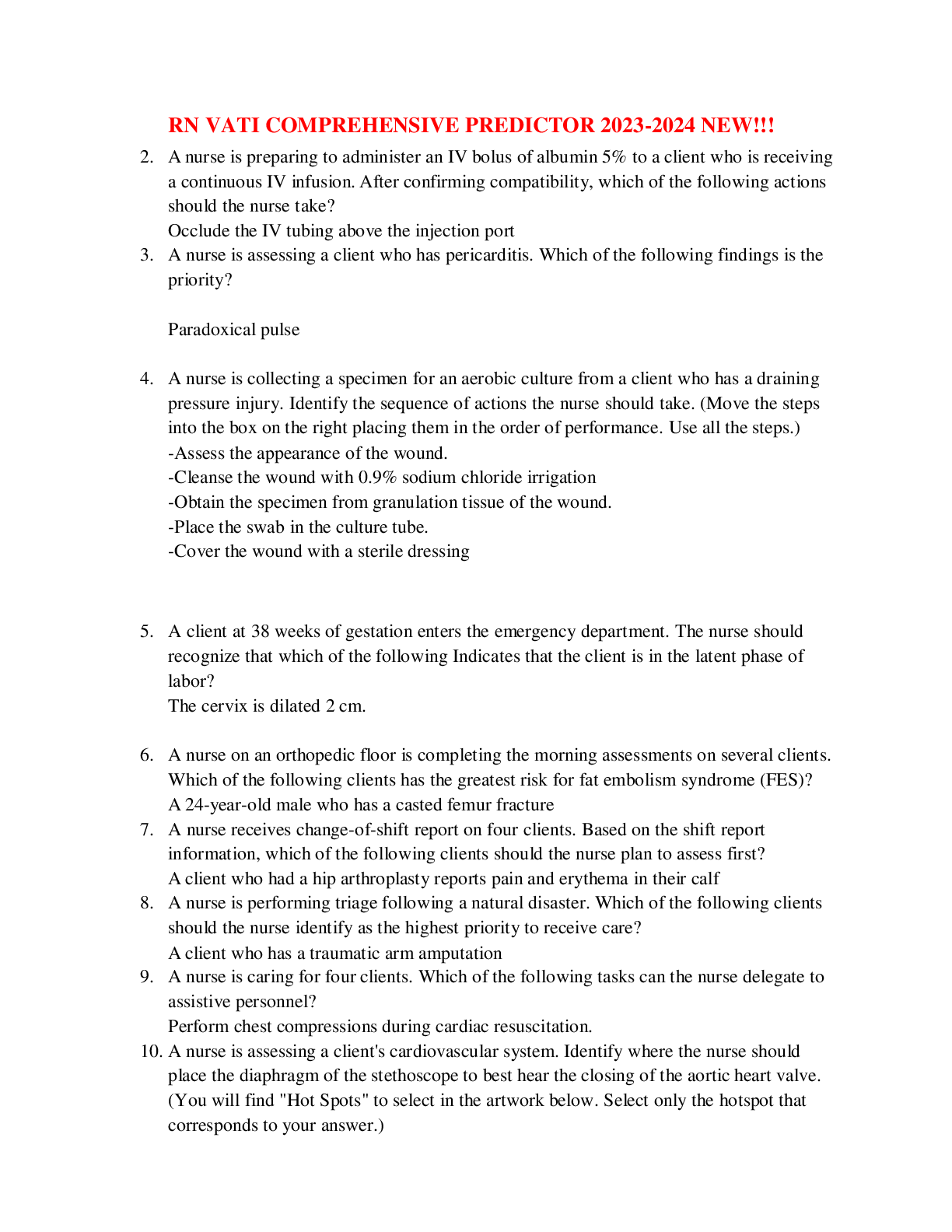healthcare > ATI > RN VATI COMPREHENSIVE PREDICTOR 2023 REAL EXAM 180 QUESTIONS AND CORRECT ANSWERS (All)
RN VATI COMPREHENSIVE PREDICTOR 2023 REAL EXAM 180 QUESTIONS AND CORRECT ANSWERS
Document Content and Description Below
1. A nurse on a mental health unit is admitting a client who has posttraumatic stress disorder. Which of the following findings should the nurse expect? A. Talks continuously about the event B. Preo... ccupied with having a serious illness C. Has difficulty concentrating on a task D. Experiences frequent grandiose thoughts 2. A nurse is administering a scheduled medication to a client. The client reports that the medication appears different than what they take home. Which of the following responses should the nurse make? A. "Did the doctor discuss with you that there was a change in this medication? " B. "Do you know why this medication is being prescribed for you?" C. "I will call the pharmacist now to check on this medication " D. "I recommend that you take this medication as prescribed" 3. A nurse is assessing a client who is in skeletal traction for a fractured left tibia. The nurse should Identify that which the following findings indicates altered tissue perfusion of the affected extremity? A. Purulent drainage at the site B. Faint pedal pulse of left leg C. Pain with movement of the left great toe D. Warm skin temperature distal to pin site 4. A nurse is providing teaching to an adolescent who has peptic ulcer disease. Which of the following statements by the client indicates an understanding of the teaching? A. "I will decrease my daily protein intake to 15 grams per day" B. "I will use ibuprofen as needed to control abdominal pain" C. "I will take sucralfate with meals three times per" D. "I will avoid food and beverages that contain caffeine" 5. A nurse is caring for a client who is in the advanced stage of amyotrophic lateral sclerosis (ALS). Which of the following referrals is the nurse's priority? A. Occupational therapist B. Social worker C. Speech-language pathologist D. Psychologist 6. A nurse administers digoxin 0.125 mg PO to an adult client. For which of the following findings should the nurse notify the provider? A. Constipation for 2 days B. Potassium level 4.2 mEq/L C. Digoxin level 1 ng/mL ** normal levels 0.5- 2.0 D. Apical pulse 58/ min 7. A nurse is updating the plan of care for a client who has an exacerbation of psoriasis. Which of the following interventions should the nurse include in the plan? A. Discontinue ultraviolet light therapy if lesions become itchy B. Cover lesions with an occlusive dressing after applying a corticosteroid. C. Scrub external lesions with a pumice stone D. Instruct the client to add rubbing alcohol to bath water 8. A nurse is verifying a record of informed consent for a client who scheduled for surgery. Which of the following actions should the nurse take? A. Provide Information on the informed consent form about the benefits of the surgery B. Confirm the client's signature is authentic C. Inform the client about the condition that requires treatment D. Explain the procedure to the client before verifying informed consent.??? 9. A nurse is caring for a client who requests the creation of a living will. Which of the following actions should the nurse take? A. Schedule a meeting between the hospital ethics committee and client B. Determine the client's preferences about postmortem care C. Evaluate the client's understanding of life sustaining measures D. Request a conference with the client's family 10. A nurse in an emergency department caring for a toddler who has burns following a house fire. Which of the following actions should the nurse take first? A. Administer antibiotics prophylactically to prevent sepsis. B. Determine the location and depth of the burns. C. Calculate fluid replacement based on vital signs and urinary output. D. Check the mouth for soot and smoky breath. ABC’S 11. A nurse is caring for an older adult client who has prescriptions for multiple medications. Which of the following factors should the nurse identify as an age-related change that increases the risk for adverse effects from medications? A. Prolonged medication half-life B. Increased medication elimination C. Decreased medication sensitivity D. Rapid gastric emptying [Show More]
Last updated: 10 months ago
Preview 1 out of 60 pages
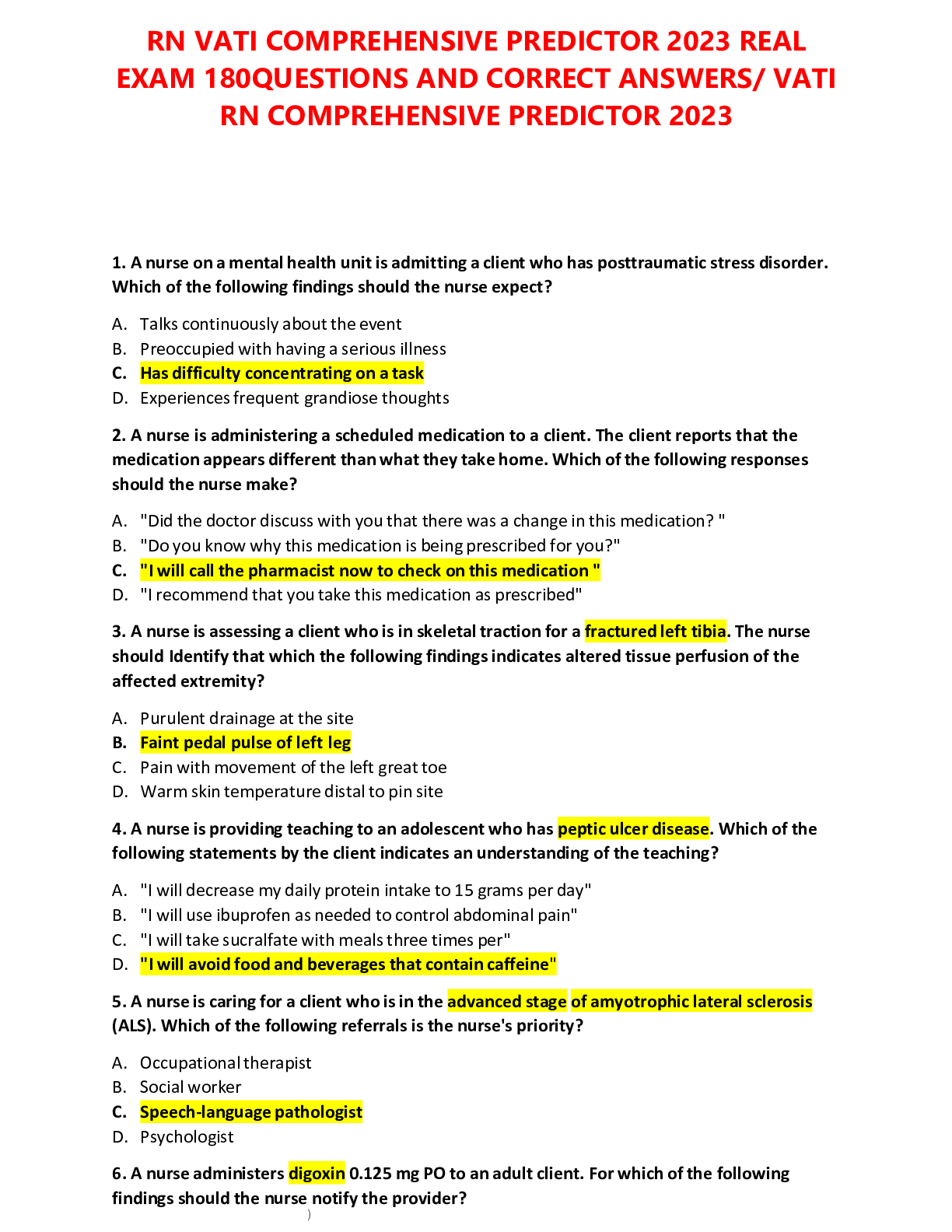
Reviews( 0 )
Document information
Connected school, study & course
About the document
Uploaded On
Jun 14, 2023
Number of pages
60
Written in
Additional information
This document has been written for:
Uploaded
Jun 14, 2023
Downloads
0
Views
60

